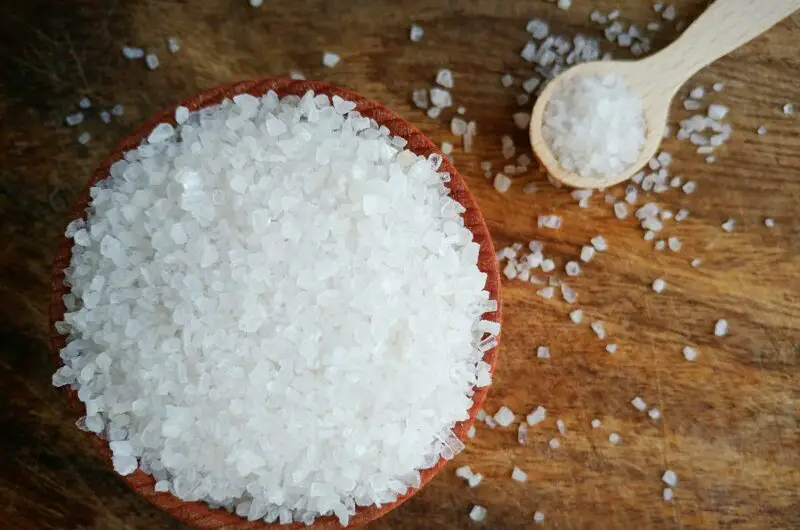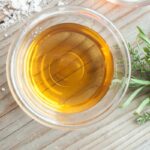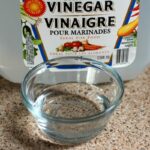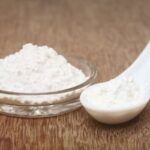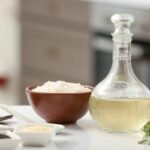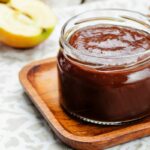Epsom salt can be considered nature’s chill pill. Whether you ingest a little bit to remove constipation or add it to your bath water, the salt has the ability to help you relax in a variety of ways.
That said, it is not the only thing that can help you achieve this. There is a range of common kitchen products, including apple cider vinegar, baking soda, and sea salt that can be used as a substitute for Epsom salt.
Epsom Salt – who’s chemical name and breakdown is Magnesium Sulfate – is a mineral compound that consists of oxygen, sulfur, and magnesium.
Like all salts, it is water-soluble, however, it features a denser and thicker appearance to table salt.
With this in mind, this guide will explore all the different alternatives you can use instead of Epsom salt when you simply don’t have it on hand. Let’s get into it.
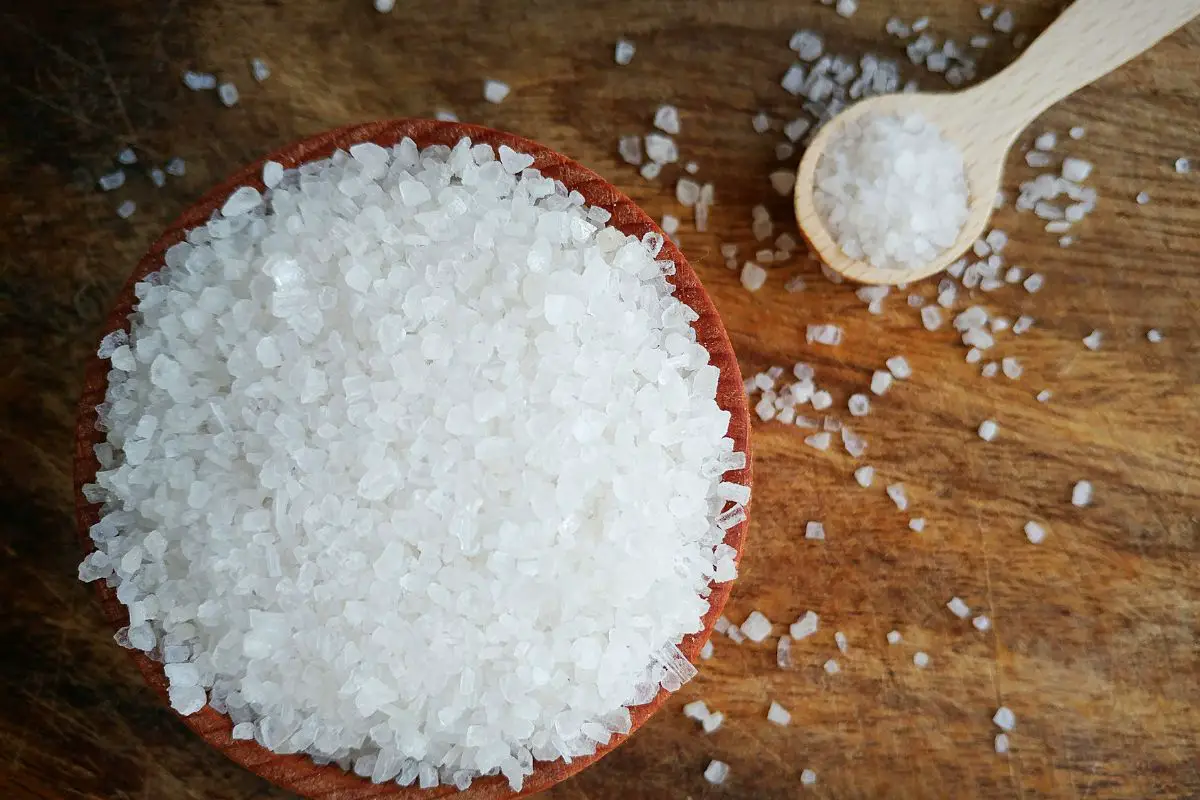
What Is Epsom Salt?
Before we look at the different alternatives to Epsom, it is beneficial to look at what Epsom salt actually is.
Epsom salt – otherwise known by its chemical name, magnesium sulfate – is a type of mineral compound. It is made up of oxygen, magnesium, and sulfur.
In addition, it has a white, hard, and crystalline structure that is soluble in water. As a result, it is commonly mistaken for table salt, however, these products differ greatly in both application and taste.
While you can eat Epsom salt, it can have an unpalatable and bitter flavor that makes it unsuitable for cooking. Therefore, many people prefer to use it when it comes to cosmetics – taking advantage of all its benefits.
That said, it is important to remember that while many people swear by Epsom salt’s healing properties, there is no proof that it can treat ailments.
Furthermore, many people take Epsom salt to help alleviate sore muscles, constipation, and insomnia – where it is most commonly used and dissolved in bath water.
Hence, this is why it is known as bath salts, too. The idea is that the Epsom salts release sulfate and magnesium ions into the water – which then absorb into the skin, helping to strip dead skin cells and alleviate muscle soreness.
The Best Epsom Salt Alternatives
1. Essential Oils
Today, essential oils are more beloved than ever before. Some people enjoy placing a few drops in their foot baths – hoping to alleviate pains and aches.
Moreover, it can also be used as an alternative to Epsom salt to ease tightness and muscle soreness.
When it comes to relieving tired and achy feet muscles, peppermint and tangerine oils work the best. Thanks to these two components, you’re sure to achieve all your muscle relief desires.
However, you should remember that essential oils won’t help when it comes to exfoliating your feet. Epsom salt can help to naturally remove dead skin cells – keeping your skin smooth.
2. Dead Sea Salt
Known around the world for its world-renowned therapeutic properties, Dead Sea salt is a popular method to reap all the benefits from the Dead Sea in the comfort of your home.
As such, it is known to help relieve muscular pains and aches, improve circulation, and detoxify the skin.
Moreover, it is known to be beneficial in aiding conditions such as eczema and psoriasis.
The salt itself contains a unique texture and taste that sets it apart from other salt varieties.
When compared to Epsom salt, it has a much coarser texture. Plus, a slightly more bitter taste, too.
That said, it can be used as an alternative to Epsom salt in a range of different recipes.
All you have to do is add a little less Dead Sea salt than you would Epsom salt in your recipes – this is because it is much more potent.
Likewise, you can also modify the amount depending on your preference.
Thanks to its range of health benefits, Dead Sea salt is certainly an alternative you need to try out.
3. Apple Cider Vinegar
With its extensive benefits, it may seem that there is nothing apple cider vinegar can’t do! It can make your hair shiny, helps with digestion, cleans your house, and even makes for a delicious salad dressing!
For anyone suffering from muscle aches or soreness, you can add a cup of apple cider vinegar to your baths. Like Epsom salt, it will help alleviate soreness and allow you to relax.
4. Baking Soda
Otherwise known as sodium bicarbonate, baking soda doesn’t only make for an ideal leavener in all your baked goods, but it is also an amazing alternative to Epsom salt, too, especially when adding it to your baths!
Here, it helps to calm irritated skin and soothes tense muscles. Plus, once added to bath water, it creates a silky texture – reducing inflammation and redness.
These types of healing properties are ideal for anyone suffering from skin conditions such as sunburns, eczema, and fungal infections.
Since Epsom salt has similar properties, baking soda is an ideal alternative when you don’t have any on hand. The best part? It is a common household product – you’re sure to have some in your pantry!
5. Oatmeal
As previously mentioned, Epsom salt has exfoliating properties, too – helping you to naturally remove dead skin cells and exfoliate your skin.
If you’re looking for similar benefits in an alternative, why not consider using oatmeal? Here, you’ll have to put your DIY skills to the test by creating a paste and exfoliating your skin.
All you have to do is mix a couple of tablespoons of warm water with oatmeal. If the mixture is too watery, simply add more oats. Conversely, if it’s too thick, add more water.
Then, simply scrub the mixture on your skin – allowing it to sit for a few minutes, and then remove it with water or a damp cloth to further exfoliate.
6. Table Salt
Another common kitchen staple – that everyone has in their pantry! – is table salt which has various different uses and purposes.
For instance, it can be used for plants as a mineral supplement. Alternatively, you can use it in homemade soap, too.
Moreover, you can also use table salt to soak your feet or exfoliate your skin. One of the main benefits of table salt is that it is effective in absorbing odors.
Likewise, it features a salty-strong taste and a coarse texture – available in both non-iodized and iodized varieties.
Iodized salt features iodine – an essential nutrient for the body. Whereas non-iodized doesn’t contain any.
For many recipes, you can use table salt as a substitute for Epsom salt. When using this alternative, simply use one cup of table salt for every two cups of Epsom salt.
7.Mustard Powder
While it may seem unlikely, mustard powder has a range of different health benefits.
For instance, ground mustard seeds (or substitute) are a traditional remedy when it comes to treating sore and aching bodies.
Generally, these can be found in supermarkets labeled as mustard plasters – these are patches containing mustard powder.
You can either opt for these bandaids or simply add mustard powder to your bath where you can sit down and relax.
8. Clay
If you’re using Epsom salt for cosmetic purposes, then you’ll need an alternative that is skin-friendly. In such cases, one impressive alternative for Epsom salt is clay.
Clay is ideal for clearing out excess sebum and drawing out impurities in the skin. In facial marks, it can be seen as one of the most common ingredients, especially when it comes to those with detoxifying and exfoliating formulas.
Moreover, it is also an ideal substitute for Epsom salts in baths, too. Here, to reap all the benefits, make sure to use green clay – since this has a higher mineral content.
If you’re looking for a scrub that is more neutral, opt for a white clay powder.
Final Thoughts
When it comes to Epsom salts, the benefits are seemingly endless. Not only does it make a wonderful bath addition, but it can help constipation issues, as well as exfoliate the skin.
That said, when you don’t have any Epsom salts on hand, you’re going to need the next best alternative. This is where this guide comes in.
Hopefully, this guide has provided you with all the best alternatives for Epsom salt so you can reap the benefits without missing out.
If your recipe happens to call for Kosher salt and you don’t have any on hand, check out our helpful kosher salt substitute guide here.
9 Wonderful Epsom Salt Substitutes
Course: Substitutes4
servings30
minutes40
minutes300
kcalDon’t have Epsom salt on hand? No problem! There are a number of effective substitutes you can use. Check out our list of the 9 best substitutes for Epsom salt.
Ingredients
Directions
- Decide on what substitute you need
- Pick a substitute from the list above
- Read what you need to substitute with
- Create the recipe and enjoy
Recipe Video
https://youtu.be/VgnKcEtIDBUVideo can’t be loaded because JavaScript is disabled: Can I Use Table Salt Instead of Epsom Salt for a Bath? (https://youtu.be/VgnKcEtIDBU)- What Exactly Do Chickpeas Taste Like? Is There A Distinct Flavor? - September 30, 2023
- Top 11 Low Carb Options at Sonic Drive-In for Keto Diet - September 30, 2023
- What Should You Serve Alongside Potato Salad? 8 Incredible Side Dishes - September 30, 2023

